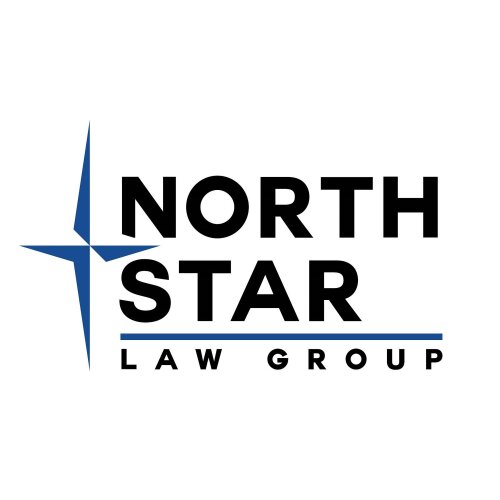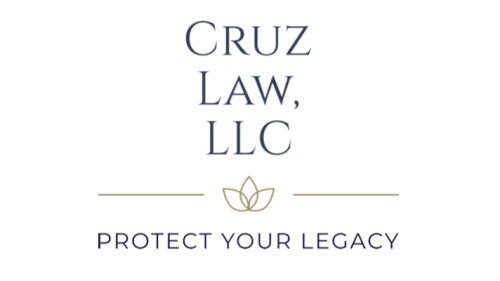Best Collaborative Law Lawyers in Alaska
Share your needs with us, get contacted by law firms.
Free. Takes 2 min.
Free Guide to Hiring a Family Lawyer
Or refine your search by selecting a city:
List of the best lawyers in Alaska, United States
About Collaborative Law in Alaska, United States
Collaborative Law, also called collaborative practice, is an alternative dispute resolution process available in Alaska, United States for resolving legal matters, especially those involving family law issues such as divorce, child custody, and property division. Instead of going to court, parties work together with the help of trained collaborative lawyers and sometimes other professionals, like financial advisors or mediators, to reach a mutually acceptable agreement. The key aspect of Collaborative Law is the commitment from both sides to resolve their disputes respectfully and privately, without litigation, resulting in a solution that meets everyone's needs.
Why You May Need a Lawyer
Certain situations make seeking legal assistance through Collaborative Law beneficial. Here are common reasons people choose this approach in Alaska:
- Divorce and Separation: When couples want to end their marriage amicably and maintain control over the outcome instead of leaving decisions up to a court.
- Child Custody and Parenting Agreements: For parents who wish to prioritize the best interests of their children and establish parenting plans cooperatively.
- Property and Asset Division: If you have shared assets, debts, or complex property matters, a collaborative lawyer can help ensure a fair and transparent process.
- Business Ownership and Family Businesses: To address issues related to jointly owned businesses or family-run enterprises without the disruption of litigation.
- Estate and Probate Matters: When family members want to resolve disputes over a will or inheritance outside of court.
- Relationship Preservation: For parties aiming to maintain a cordial relationship after resolving legal matters, such as in co-parenting or ongoing business relationships.
- Privacy and Confidentiality: Those who value or require privacy, as collaborative law keeps details out of the public court record.
Local Laws Overview
In Alaska, Collaborative Law is not governed by a standalone statute, but it is supported by the Alaska Rules of Professional Conduct and recognized as a valuable option for dispute resolution by the state court system. Key aspects include:
- Voluntary Participation: All parties must willingly agree to resolve their disputes through the collaborative process.
- Disqualification of Attorneys: If the process fails and parties opt for litigation, the collaborative attorneys must withdraw from the case, and new representation is required.
- Good Faith Commitment: Both parties and their lawyers sign a participation agreement promising to openly share all relevant information and work toward a fair outcome.
- Use of Additional Professionals: Depending on the case, financial specialists, mental health professionals, or child specialists might be included in the team.
- Court Approval: Any agreement reached, particularly those involving children, must be approved by the Alaska Superior Court to become legally binding.
- Confidential Communication: Information shared during the collaborative process is generally confidential and cannot be used later in court if the process breaks down.
Frequently Asked Questions
What types of cases are suitable for Collaborative Law in Alaska?
Collaborative Law is most often used for family law matters, including divorce, child custody, and property division, but it can also be applied to probate, business, and other civil disputes where parties wish to avoid litigation.
What is the role of a collaborative lawyer?
A collaborative lawyer helps clients understand their rights and responsibilities, facilitates open communication, negotiates solutions, and ensures all legal agreements comply with Alaska law. They do not aggressively litigate but instead focus on cooperative problem-solving.
How is Collaborative Law different from mediation?
In mediation, a neutral third party helps the disputing parties reach an agreement, but the parties may or may not have their own lawyers present. In Collaborative Law, each party has their own collaborative lawyer guiding them through negotiations from start to finish.
Is Collaborative Law recognized by Alaska courts?
Yes. While there is no specific statute, Alaska courts recognize collaborative agreements, as long as they comply with state laws and protect the interests of all parties, especially any minor children involved.
What happens if the Collaborative Law process fails?
If the process breaks down, both collaborative lawyers must withdraw from the case, and parties are free to pursue litigation with new attorneys. Information shared during the collaborative process typically remains confidential.
Can I use Collaborative Law if there is a history of domestic violence?
Collaborative Law may not be appropriate if there is a significant imbalance of power or history of domestic violence. Discuss your situation carefully with a lawyer to evaluate if collaborative practice is safe and effective for you.
How much does Collaborative Law cost in Alaska?
While the cost varies depending on case complexity and professionals involved, collaborative cases often cost less than traditional litigation due to reduced court fees and a faster, more focused resolution process.
Do I have to go to court if I use Collaborative Law?
Most of the resolution happens outside of court, but for certain family law matters, a judge must approve the final agreement to make it legally binding. Typically, this is a short and straightforward process once an agreement is reached.
Are the agreements reached in Collaborative Law legally binding?
Yes. Once the agreement is submitted and approved by the court (when required), it is enforceable under Alaska law just like agreements reached in traditional litigation.
How do I find a collaborative lawyer in Alaska?
You can look for attorneys with specific training in collaborative law through state bar associations, collaborative law associations, or through referrals from other professionals and legal organizations in Alaska.
Additional Resources
If you are interested in Collaborative Law in Alaska or need more information, consider the following resources and organizations:
- Alaska Bar Association: Offers a lawyer referral program and lists attorneys trained in collaborative law.
- Alaska Court System Family Law Self-Help Center: Provides information about family law processes and alternative dispute resolution methods.
- International Academy of Collaborative Professionals: Lists qualified collaborative law professionals, including those practicing in Alaska.
- Local Mediation and Dispute Resolution Centers: Some centers in Alaska offer collaborative law services and useful information.
Next Steps
If you believe Collaborative Law may be the right approach for your situation, consider the following steps:
- Research collaborative law professionals in your area and confirm they have appropriate training and experience.
- Schedule a consultation with a collaborative lawyer to discuss your circumstances and goals.
- Ask about the collaborative process, expected costs, timelines, and whether your case is suitable for this approach.
- If both parties agree, proceed by signing a collaborative participation agreement with your respective attorneys.
- Work together, with the assistance of lawyers and other professionals as needed, to negotiate a fair and lasting agreement.
- Submit the agreement to the appropriate Alaska court for approval if required, ensuring your arrangement is legally recognized and enforceable.
Collaborative Law offers a respectful, confidential, and cooperative path to resolving legal disputes. By seeking guidance from qualified professionals and understanding your rights under Alaska law, you can achieve solutions that work for everyone involved.
Lawzana helps you find the best lawyers and law firms in Alaska through a curated and pre-screened list of qualified legal professionals. Our platform offers rankings and detailed profiles of attorneys and law firms, allowing you to compare based on practice areas, including Collaborative Law, experience, and client feedback.
Each profile includes a description of the firm's areas of practice, client reviews, team members and partners, year of establishment, spoken languages, office locations, contact information, social media presence, and any published articles or resources. Most firms on our platform speak English and are experienced in both local and international legal matters.
Get a quote from top-rated law firms in Alaska, United States — quickly, securely, and without unnecessary hassle.
Disclaimer:
The information provided on this page is for general informational purposes only and does not constitute legal advice. While we strive to ensure the accuracy and relevance of the content, legal information may change over time, and interpretations of the law can vary. You should always consult with a qualified legal professional for advice specific to your situation.
We disclaim all liability for actions taken or not taken based on the content of this page. If you believe any information is incorrect or outdated, please contact us, and we will review and update it where appropriate.
Browse collaborative law law firms by city in Alaska
Refine your search by selecting a city.
















